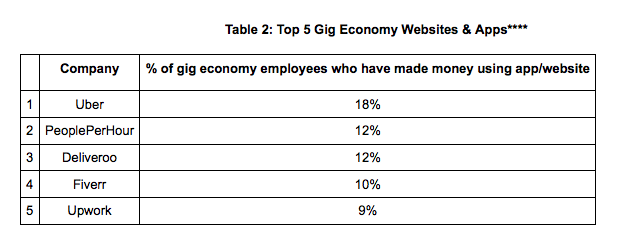UK workers on zero-hour contracts have more than tripled since 2012, climbing from 252,000 to 901,000 workers.
The number of UK workers on zero-hour contracts has more than tripled since 2012, propping up overall employment levels by accounting for almost a quarter of overall employment growth, according to new data by job search engine Adzuna.co.uk.
With the employment rate currently at a record high of 75.7% according to the ONS, Adzuna’s data compares recent growth in the number of people in work overall to the increasing number of zero-hour contracts, to ascertain how much these contracts have contributed to the growth.
Zero-hour contracts have grown by 258% since 2012, with 901,000 workers currently employed on this contract type, up from 252,000, and zero-hours workers currently representing 2.8% of the UK workforce.
Meanwhile, the number of workers in employment overall has risen by 2.42 million over the same period, from 29.73 million in 2012 to 32.15 million in 2017. This means that zero hour contracts represent more than a quarter (26.8%) of overall employment growth over the past five years, and therefore recent reports praising record high employment levels could be deemed to be misleading in regards to the stability of the UK job market.
Andrew Hunter, co-founder of Adzuna, said: “MPs are quick to sing the praises of an improving jobs market, but the headline figures are drowning out the detail. A big chunk of the employment boost is down to a boom in zero hour contracts and ‘gig’ jobs, which do not always offer the same employment rights and stability of fixed contracts. As a result, overall figures look rosier than reality. Other workers have been forced into self-employment not out of choice but to escape the breadline, and many use the gig economy to top-up their pay packets.”
The gig economy has also contributed to employment growth. Recent figures estimate that the booming gig economy employs more than 2.8 million workers overall. This is based on a definition of the ‘gig economy’ as “involving an exchange of labour for money between individuals or companies via digital platforms that actively facilitate matching between providers and customers, on a short-term and payment by task basis.”
The working trend includes many freelancers, contract staff and part-time workers, as well as those employed on zero hours contracts.
The sector is growing fast, with almost a quarter-of-a-million vacancies (225,000) currently being advertised on Adzuna. On September 1, 2018, there were 143,294 temporary contract vacancies, 6,838 freelance roles, and 74,983 part-time positions available on the UK jobs market.
Many of these jobs are clustered in London and the South East. The capital currently boasts 2,387 freelance opportunities (offering an average salary of £49,907), 26,071 contract vacancies (with an average salary of £36,825) and 9,671 part-time positions (with an average salary of £28,417).
However, opportunities for flexible work are much fewer away from the home counties. The North East, for example, currently offers only 141 freelance vacancies (£41,912), 3,933 contract roles (£24,725) and 2,480 part-time opportunities (£25,741). Similarly, Yorkshire & Humber boasts just 217 freelance roles (£44,175), 7,408 contract jobs (£25,054) and 3,918 part-time vacancies (£25,499).

















